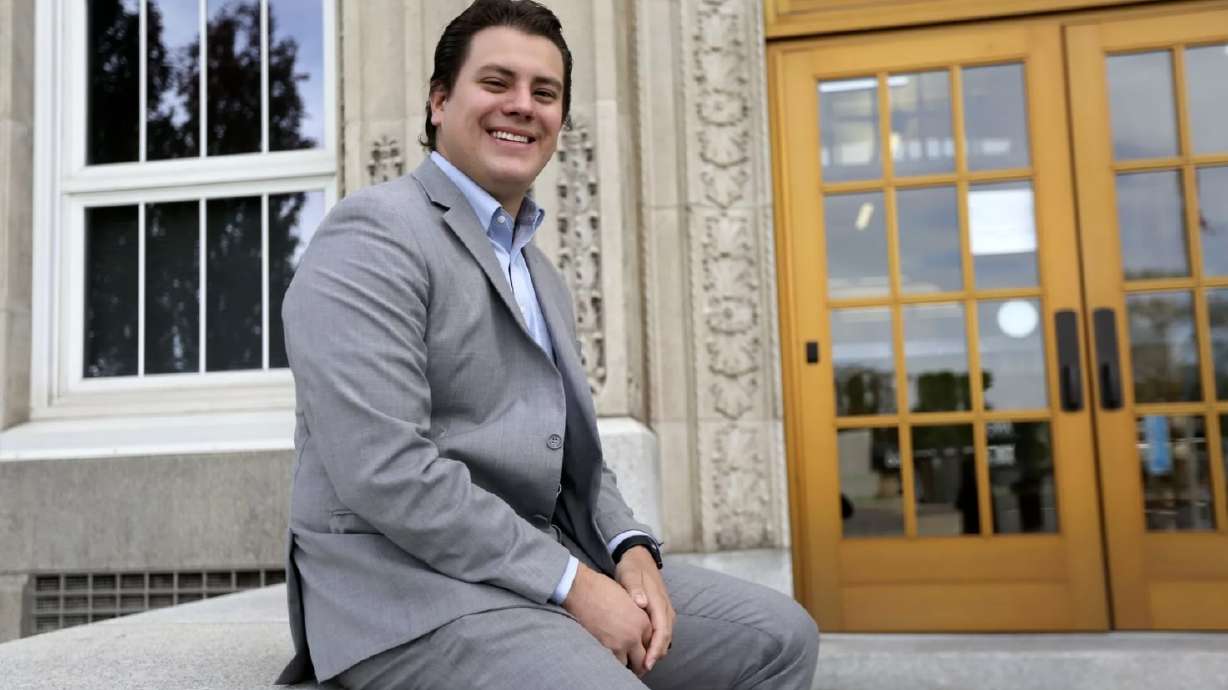Estimated read time: 4-5 minutes
This archived news story is available only for your personal, non-commercial use. Information in the story may be outdated or superseded by additional information. Reading or replaying the story in its archived form does not constitute a republication of the story.
SALT LAKE CITY — Mario Organista, a 2015 University of Utah graduate who carries some $20,000 in student loan debt, says federal relief for borrowers extended under the CARES Act is a “safety net” for his household.
Organista’s wife also has $25,000 to $30,000 in student loan debt, so the assistance provided by the federal legislation was a welcome relief, he said. It means that temporarily, they will have a $400 to $600 a month they can put toward savings, other debt and meeting household needs.
Fortunately, Organista and his wife are both working but he said they are dealing with uncertainty as the economy sputters and there have been record job losses related to the COVID-19 pandemic.
“We’re just extremely grateful that this is really helping families like myself, and just not to worry about, having extra cushion is actually creating a safety net for me and my family,” he said.
Organista spoke during a press conference on federal student loan relief conducted Wednesday by Rep. Ben McAdams, D-Utah, at Salt Lake Community College’s South Campus.
“Congress wanted student borrowers to focus on staying safe and staying healthy, recognizing that this pandemic has created a huge economic hardship for Utah households. We want them to not be worrying about their student loan balance, but instead focus on providing for their families and staying healthy,” said McAdams, who in March spent more than a week hospitalized for treatment after contracting the new coronavirus.
“For recent college graduates carrying federal loans the ... uncertainty of the economic shutdown is stressful and it’s challenging. I recognize that. This relief offers one less financial obligation to juggle as they grappling with such things as child care worries, employment concerns and fears about getting COVID-19,” he said.
For federally-held student loans, the legislation automatically reduces interest to zero and suspends monthly loan payments through Sept. 30. The suspension started on March 13. Eligible borrowers do not have to do anything to receive the relief, he said.
“What we’ve done here is, we’ve provided some additional relief to students and student borrowers who are pursuing public service loan forgiveness,” McAdams said.
Privately-held student loans are not eligible for the relief.
Payment on federal student loans are not required until Oct 2020. This relief is part of the #CARESAct, passed by Congress. As we deal with the economic impacts of #COVID19, this is one less financial burden that hardworking Utahns need to manage. #utpolhttps://t.co/JHA1p6SCdy
— Rep. Ben McAdams (@RepBenMcAdams) May 6, 2020
Utah college students typically have less student debt than their peers in other states, but approximately 38 percent of Utah students have some loans to pay off, McAdams said.
Nationally, the average interest rate on federal student loans is about 5.5% and the typical student loan bill is about $400 monthly.
Alejandra Hernandez, who graduated from the U. in 2016, said as the economy started to slow down, she considered not paying her loans because she was unsure whether she would remain employed in her current job.
Relief extended under the CARES Act has enabled her to focus on saving money and paying off credit card debt.
“This has made such a big difference in my life. It’s the first time getting some sort of relief, and it’s a much needed break for me. Personally, I’ve had a lot of uncertainty in my life job wise since graduating college,” she said.
Chuck Lepper, Salt Lake Community College’s vice president for student affairs and enrollment, expressed gratitude on behalf of student loan borrowers across the state.
“They are tremendously grateful and appreciative of this relief that’s being provided through the forbearance of student loans and interest until Sept. 30. It’s all on behalf of all educators in the state of Utah I want to express my gratitude and thanks and appreciation and advocacy for our students in Utah for this great opportunity to have some relief during this crisis,” Lepper said.
Eligible borrowers are those with federally-held student loans, such as Direct Loans, Family Federal Education Loans, Perkins Loans, Parent Plus and Grad Plus.
Borrowers who can afford it can continue making payments or even making extra payments. During this period the entire payment will go toward principal, helping them pay off their debt faster.
The CARES Act also halts all involuntary collection of federal student loan debt, including wage garnishment and tax refund offset. It also halts negative credit reporting relating to federal student loans.
For information, visit the U.S. Department of Education’s Federal Student Aid website.










